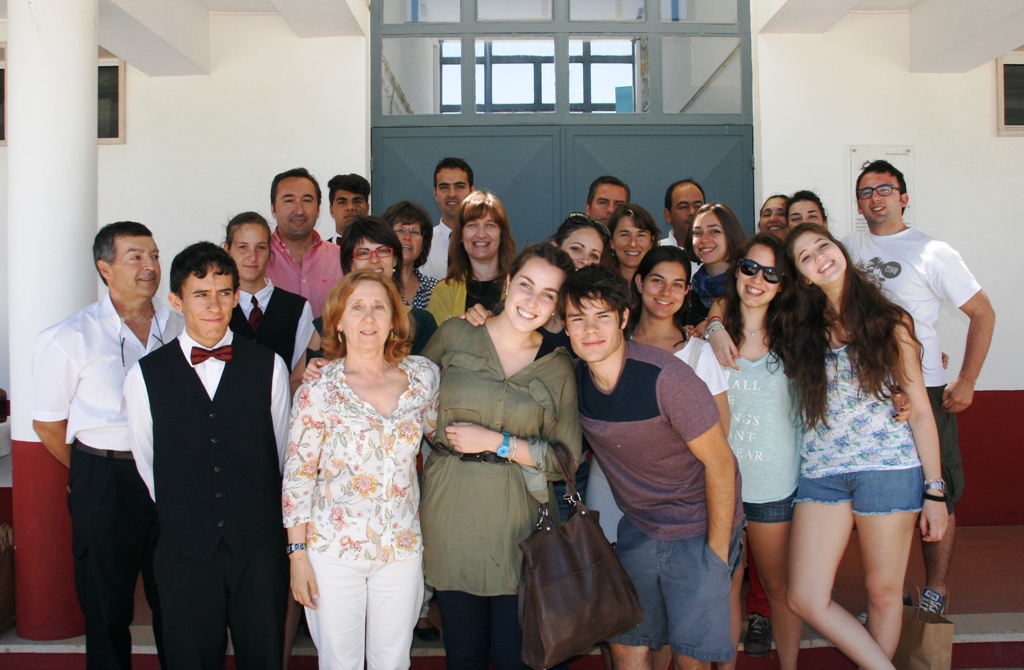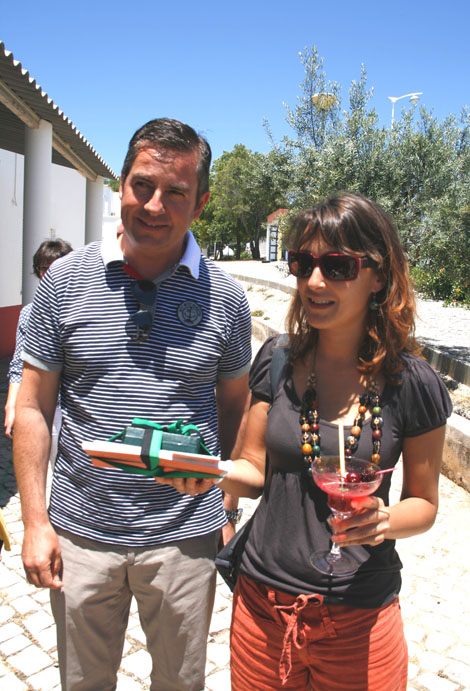 A delegation from the Slow Food International movement and a group of students from the Slow Food University of Gastronomic Sciences in Italy visited the municipality of São Brás de Alportel last week.
A delegation from the Slow Food International movement and a group of students from the Slow Food University of Gastronomic Sciences in Italy visited the municipality of São Brás de Alportel last week.
The Algarve's mountain council is one of the Portuguese municipalities that officially integrates the “Slow Cities – Cittaslow” movement, which it joined in 2008. The mayor of São Brás António Eusébio is, moreover, the current president of the Cittaslow Portugal Association.
The visit lasted four days, during which the visitors got to know the Museu do Trajo, the Cork Route, visit a cork factory in the process of production, ending the route with a visit to Pelcor, «a reference at national level and innovation with cork skin», according to the São Brasense municipality.
 "The visit to the traditional sweets was also part of this slow experience, with a stop at Tesouros da Serra for the appreciation and tasting of typical sweets, liqueurs, teas, among many other products of its own manufacture," added the City Council of São Brás in a press release.
"The visit to the traditional sweets was also part of this slow experience, with a stop at Tesouros da Serra for the appreciation and tasting of typical sweets, liqueurs, teas, among many other products of its own manufacture," added the City Council of São Brás in a press release.
The program also included a lunch, held at Academia dos Sabores, at Escola Secundária José Belchior Viegas, where participants were able to taste various suggestions made by students of the Professional Table and Bar and Cooking Courses at that school.
The Slow Food movement was created by the hand of Carlos Petrini, in opposition to Fast Food and fights for the valorization of regional and local culinary traditions, of seasonal products and intimately associated with a growing awareness of the identity of each place.
«The Slow Food University of Gastronomic Sciences is the result of a commitment by the founder of the movement and has as its main objective the creation of an international center for research and education for those who work in the renewal of agricultural practices, protection of biodiversity and construction of an organic relationship between gastronomy and agricultural sciences, between "chefs", gastronomists and all those who share the idea of a global community that defends fair, healthy and environmentally friendly food," explained the municipality.


















Comments